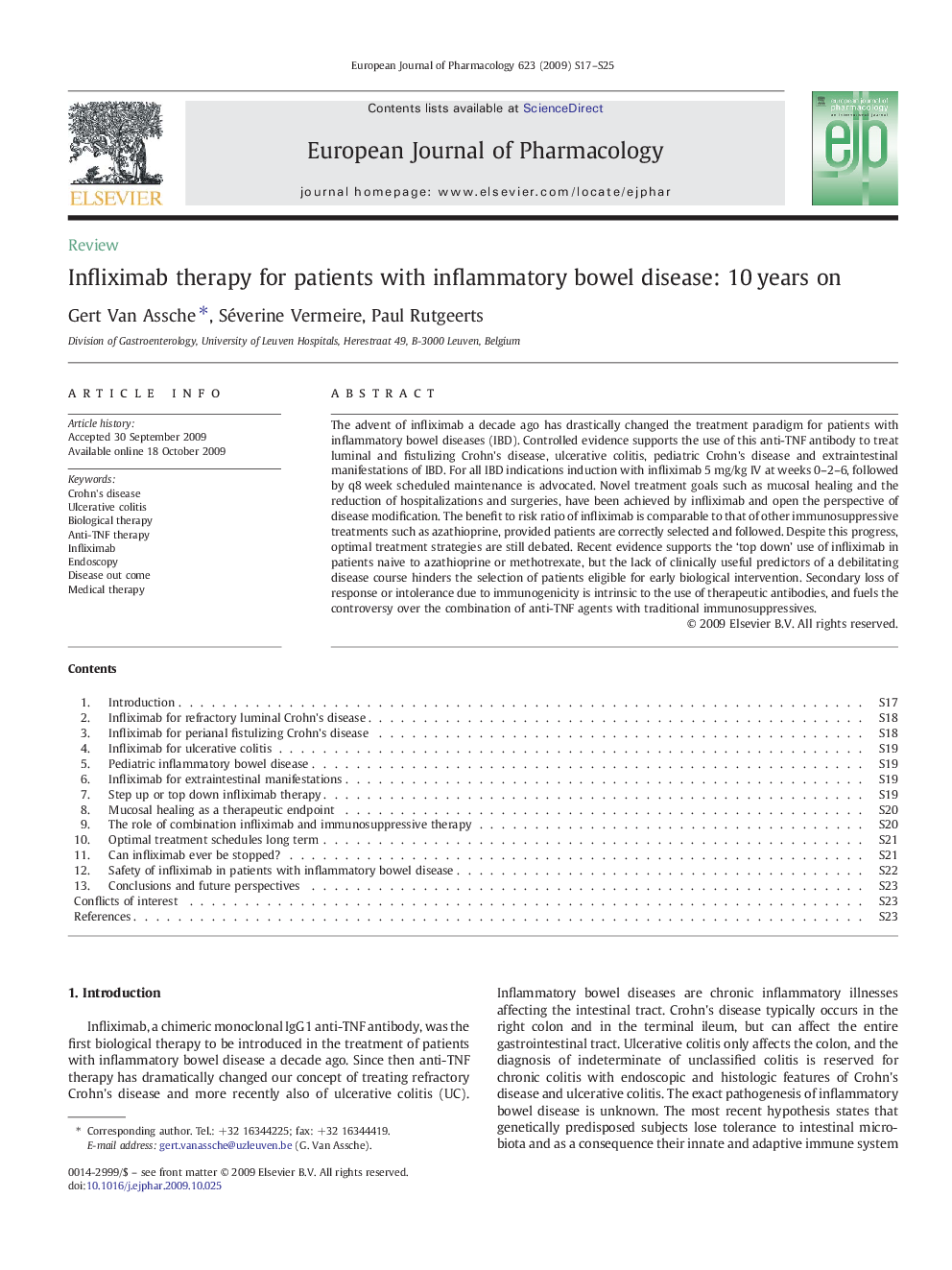| Article ID | Journal | Published Year | Pages | File Type |
|---|---|---|---|---|
| 2533996 | European Journal of Pharmacology | 2009 | 9 Pages |
The advent of infliximab a decade ago has drastically changed the treatment paradigm for patients with inflammatory bowel diseases (IBD). Controlled evidence supports the use of this anti-TNF antibody to treat luminal and fistulizing Crohn's disease, ulcerative colitis, pediatric Crohn's disease and extraintestinal manifestations of IBD. For all IBD indications induction with infliximab 5 mg/kg IV at weeks 0–2–6, followed by q8 week scheduled maintenance is advocated. Novel treatment goals such as mucosal healing and the reduction of hospitalizations and surgeries, have been achieved by infliximab and open the perspective of disease modification. The benefit to risk ratio of infliximab is comparable to that of other immunosuppressive treatments such as azathioprine, provided patients are correctly selected and followed. Despite this progress, optimal treatment strategies are still debated. Recent evidence supports the ‘top down’ use of infliximab in patients naive to azathioprine or methotrexate, but the lack of clinically useful predictors of a debilitating disease course hinders the selection of patients eligible for early biological intervention. Secondary loss of response or intolerance due to immunogenicity is intrinsic to the use of therapeutic antibodies, and fuels the controversy over the combination of anti-TNF agents with traditional immunosuppressives.
